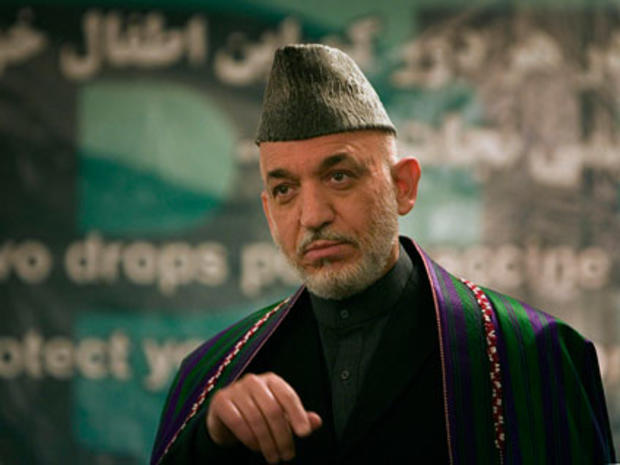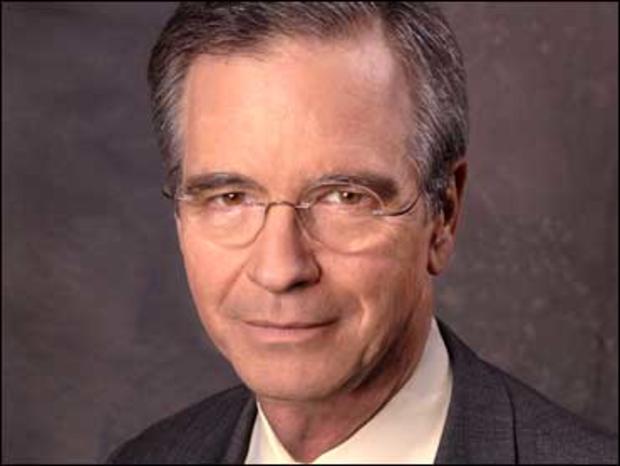Karzai's Stance Against Night Raids Poses Problems for U.S.
When the president of Afghanistan publicly calls for an end to the single most effective military tactic the U.S. is using in its battle against the Taliban, there is - to say the least - a problem.
That's what Hamid Karzai did in an interview with The Washington Post when he said, "Bursting into homes at night, arresting Afghans, this isn't the business of any foreign troops. ... The raids are a problem always. ... They have to go away." He's referring to the nightly commando raids by American special operations forces which have captured or killed hundreds of Taliban fighters and leaders in the last several months and which a senior Defense Department official calls "the single most effective" tactic in the war.
General David Petraeus, the American commander, was more than a little perturbed by Karzai's remarks, especially since Afghan officials sign off on every raid before it is conducted. Today spokesmen for both sides are trying to paper over the dispute, and if you read the transcript of the interview it's clear that Karzai is not calling for an immediate halt to the raids but saying that ending them is an important part of the "transition" of security from the U.S. to Afghanistan.
Karzai has said the transition should be completed by the end of 2014 and that date is expected to be endorsedat a NATO summit later this week. That does not mean a pull out of all American troops by the end of 2014; it means Afghan troops will be in the lead in all 34 provinces with an undetermined number of American troops providing back-up.
Petraeus, Karzai Spar Over U.S. War Plans
So the American strategy for the next four years is pretty clear - begin at least some troop withdrawals in the summer of 2011 and turn over combat responsibility to the Afghans by the end of 2014. The question is: Can the U.S. and Afghanistan execute that strategy when the relationship between them sometimes appears so dysfunctional?
The surge of American troops is unquestionably producing results at the tactical level. Taliban fighters are being pushed out of long held sanctuaries. There was never much doubt that 30,000 more troops could make life exceedingly difficult for the Taliban. But will tactical success translate to strategic success? That depends on whether the Afghan government can deliver by producing an army and police force that can take over the fighting and dispense some semblance of services to the population. Every time Karzai causes a mini-rupture with the U.S. by his words or actions, it makes you wonder about his ability or willingness to deliver.
Karzai is not always wrong. I've heard more than one American officer complain bitterly about the problems the night raids cause them. When the morning comes the special operators are gone and the unit in charge of the area is left to clean up the mess. Karzai's complaints about the flood of American contracting dollars fueling corruption and sometimes lining the pockets of the Taliban have merit. He's an Afghan who understandably resents constantly being told to do things the American way.
In any case, Karzai is not the biggest obstacle to success in Afghanistan. That would be Pakistan. As long as there are safe havens in Pakistan, the U.S. will be fighting an uphill battle in Afghanistan.
David Martin is CBS News' National Security Correspondent. You can read more of his posts in World Watch here.


